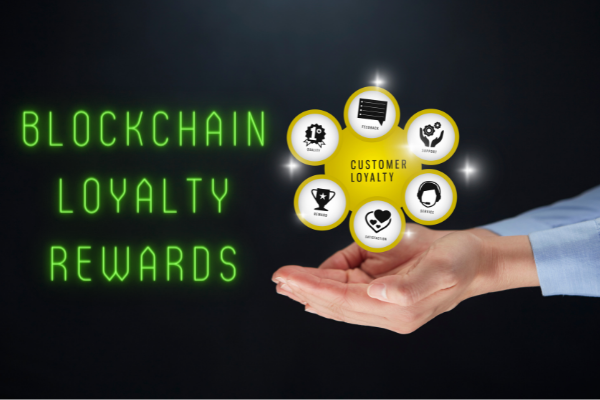Table of Contents
Loyal customers are not something to be underestimated by any retailer, whether retail or e-commerce. With the costs of acquiring new customers on the rise and the competition always on the lookout to capture the customers they have not been able to retain, building a strong group of customers who value one brand above all others and are willing to attract their inner circle is a huge advantage.
Interesting statistics on the value of loyal customers can be gleaned from a number of different studies. Let’s take a look at some of them.
– According to a study by Adobe Digital Index repeat customers generate 40% of a store’s revenue.
– 62% of millennial shoppers and 54% of the more adult population tend to buy only their preferred brand.
– The 10% of customers who have above-average loyalty spend three times more per order than the average customer, and the 1% of the most loyal customers spend five times more according to an RJMetrics survey study.

In general, loyal customers spend more, are more likely to buy when they visit the brand’s website, and are more likely to become brand advocates and defend the brand to other potential customers.
Since loyal customers are such a valuable commodity, it’s no wonder brands are spending more and more to court them. In 2016, of the Fortune 500 companies (a magazine that annually publishes the 500 largest companies) surveyed, 54% said they would increase their loyalty program budgets for 2017-2018.
For a long time, e-commerce and physical stores have used loyalty programs to encourage repeat business. Traditionally these programs have been used as a tactic to encourage repeat customers by offering points and discounts.
Sometimes with complex cards or registration processes, these programs are starting to fall out of favor with modern customers. Instead of enhancing the customer experience, they can actually have the opposite effect: dampening customer enthusiasm with complex rules and transactional rewards.
The hope for commerce is that blockchain technology will revolutionize customer loyalty rewards by eliminating some of the pain points of traditional programs. Let’s delve into those pain points and why blockchain technology may be a good option for revamping customer loyalty programs.
Customer loyalty programs are in need of an upgrade.
In e-commerce, it’s usually quick and easy for a consumer to sign up for a retailer’s loyalty program. But how many of your customers are becoming loyal brand advocates?
Traditional loyalty programs suffer from the following problems:
Low redemption rates.
Perhaps due to the sheer number of loyalty programs in the marketplace, it can be easy for customers to get lost among them and for points to eventually expire without being redeemed. Surveys show that the average American is a member of seven loyalty programs, and 30% of U.S. consumers never redeem a single point.
High costs
Large retailers both physical and e-commerce often pay very high prices to set up and maintain their third-party integrations or custom solutions for customer loyalty programs. Whether they are making adjustments to an existing application or building their own from scratch, development and maintenance fees can range from €2,000 to €15,000 per month for an enterprise-level solution.
Few customer incentives
Current loyalty programs tend to favor the company providing them, rather than the consumer. For example, customers are forced to make purchases they don’t need in order to earn the rewards. Studies also indicate that 33% of millennial consumers dislike rewards programs simply because they have to carry too many cards.
Security concerns
The Harris Poll consultancy found that 71% of consumers were less likely to join a loyalty program that collected personal information beyond just name and phone number. In fact, consumers have reason to be cautious about handing over their personal data. In 2017, 11% of financial account attacks were specifically on loyalty accounts, up 4% from the previous year.
Blockchain Use Cases
Blockchain technology can solve some of these problems with traditional e-commerce loyalty programs by connecting owners and users of multiple programs.
This technology can simplify the enrollment process and prevent consumers from having wallets full of rewards cards or passwords to several different rewards accounts.
Through blockchain, users can receive and redeem loyalty tokens that are interoperable across multiple programs. These tokens never expire or lose value, unlike traditional reward points.
Advantages of this type of system:
Open systems.
Owning a token on the blockchain cannot be revoked and is publicly recorded on the blockchain. The issuing company cannot take those points away due to any internal policies. This is a win for the consumer who doesn’t have to worry about their points expiring or devaluing before they can use them, and a win for companies who gain greater customer loyalty by providing them with a better and more transparent experience.
Less clutter
Blockchain tokens can be used in other stores, exchanged for different cryptocurrencies, or stored for as long as you want.
More flexibility
With blockchain loyalty tokens, customers have more freedom in how they redeem their tokens. One of the complaints many customers have with loyalty programs are the complex point accumulation systems and limited rewards, so allowing more flexibility in how they use the rewards they have earned is a big advantage.
Cost reduction
Program costs will not take years and hundreds of thousands of euros to implement and maintain. Because the blockchain already has your own registry.
Overall transparency
Users will know that companies can’t change the rules or token amounts based on what is in their best interest at any given time. This gives customers peace of mind that they can get what they want, when they want it.
Less fraud, more security
Blockchain is based on P2P systems, which means there is a much lower likelihood of a breach of the program itself or the store’s own data. All the information needed for the loyalty program is stored in the blockchain ledger which, as we know, is immutable. Time-stamped database entries are irreversible to prevent fraud and transaction manipulation issues.

Companies that have already adopted the Blockchain
Currently, blockchain rewards programs are not yet very numerous, however, there are already some companies that are paving the way and exploring the potential of the technology for those that will most certainly come next. Here are a few examples:
– Singapore Airlines.
In July 2018, Singapore Airlines announced that its frequent flyer program KrisFlyer would now be reinvented as KrisPay, a kilometer-based digital wallet that members could use to convert those same kilometers into a form of digital payment at other merchants.
At launch, KrisPay partnered with 18 businesses across categories ranging from beauty services and food to gas and retail. The press release announcing KrisPay describes it as “the world’s first blockchain-based digital airline loyalty wallet.”
– Chanticleer Holdings.
Another pioneer in the blockchain rewards world is Chanticleer Holdings an investor in several burger restaurant chains, including BGR, Little Big Burger, and American Burger Co. In January 2018, they announced a partnership with MobivityMind, a blockchain architecture platform.
As part of their new loyalty program, customers who eat at one of their restaurants now receive a type of cryptocurrency called Mobivity Merit that can be redeemed across brands and traded without fraud issues.
– American Express and Boxed.
In May 2019 American Express announced a blockchain trial program with Boxed. Using a blockchain framework, American Express created a private system for Boxed to transfer information that merchants on Boxed can use to fulfill rewards program offers. Essentially, when a consumer makes a purchase on Boxed, the blockchain stores data about the transaction (while hiding privileged data about the cardholder). The transaction details trigger the creation of a smart contract that then creates and awards points in a back-end loyalty system.
Blockchain technology for loyalty programs is still in its infancy, but may cause a major disruption in the industry as more brands explore its full capabilities.




